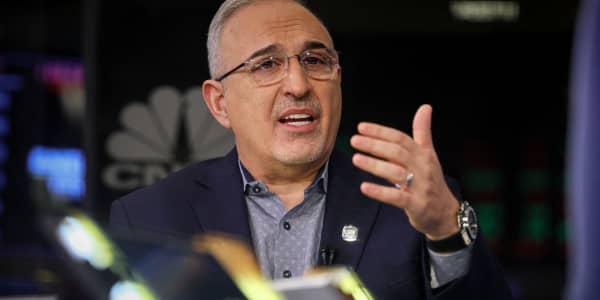Companies struggling to get workers to come back to the office have tried mandates, flexibility and everything in between. One approach may beat them all: free lunch.
Sharebite, a startup that partners with restaurants to deliver food to corporate clients, is making the case that providing a food benefit to employees is not only a strong incentive to get them back in the office but can lead to better engagement, productivity, and loyalty.
"Everyone has to eat, and food is a high-value, low-cost way to get people back into the office," says Sharebite co-founder and CEO Dilip Rao, who spent nine years in investment banking before starting the company in 2015. He said even during the depths of the financial crisis in 2008, when banks were staring into the abyss, the one thing they didn't get rid of was the late-night meal allowance. "Banks wanted to get the best out of the people who were there, and food is the way to do that," Rao said.
Now, as companies grapple with employees demanding autonomy over work arrangements, even as layoffs and recession fears mount, food is proving to be an effective lure. Sharebite recently partnered with Wakefield Research to discover how workers think about lunch breaks and meal benefits provided by their companies. They found that feeding employees has a major impact on productivity, well-being, and loyalty. In the study, 97% of respondents said taking a lunch break improves their workday. And nearly 1 in 3 said meal benefits would entice them to go into the office more often.
Of course, employees have no shortage of food delivery options they can punch up on their cell phones while they're at the office. But Rao says by going through the Sharebite platform, fees are lower than anything they would be able to get on their own. "We've all ordered a $15 sandwich that winds up costing $30 after all the fees," he says.
A tech-first approach to lunch
Rao says his company's tech-first approach to meal benefits is one of the main reasons why more than 250 organizations in investment banking, private equity, tech, retail, government, and professional sports are all customers of Sharebite.
"We address not only the issues that HR and benefits functions have, but the ones that IT and accounting have, in one place," he said. Its platform allows customers to easily integrate through its API and enables them to customize how much they're budgeting for lunch for each employee, when employees get to use it, and which restaurants are included in the offering.
"People are working harder but they're burning out," Rao said. "Meal benefits are an investment in your people and show that you care about their well-being," he said. And it's a benefit that employees use. Rao claims the average usage rate for companies offering a food benefit is 90%.
Customers also like Sharebite's commitment to the communities in which their customers do business. For every meal purchased on the platform, Sharebite donates a meal to a food pantry like Feeding America or City Harvest. Rao says since the company began it has donated over 5 million meals.
Aisha Glover, vice president of urban innovation at audio storytelling platform Audible in Newark, New Jersey, said the company began working with Sharebite in the summer of 2021. She liked the idea of offering a lunch benefit to employees, but really appreciates the investment the company was willing to make in local restaurants around Newark.
"Newark was on an upward trajectory and then the pandemic hit," Glover said. Sharebite enables Audible to support local restaurants, many of which are staffed by residents of the city. "The benefits ripple out," she said.
The process for ordering lunch is simple, Glover said. Audible employees get an email each morning with a rotating list of three local restaurants (chosen by Audible) they can order from that day. The company subsidizes up to $18 for lunch and allows employees to put a credit card on file so that they can pay out of pocket for any order that exceeds $18. The lunches get delivered to Audible's headquarters where workers can pick up their orders.
Glover said employees use the benefit consistently and aren't shy about telling her which restaurants they want to see in the rotation more often. "Food creates a sense of community and togetherness and that's what we're all about at Audible," she said.
Rao said even in an atmosphere of job cuts and recession fears, Sharebite's revenue increased by more than five times in 2022. "We may be going through layoffs, but companies still want the people they have to be productive and engaged," he said. "My view is that in the next five to 10 years food benefits are going to be part of your employee benefits program just the way health insurance and a 401(k) are."
To join the CNBC Workforce Executive Council, apply at cnbccouncils.com/wec.






